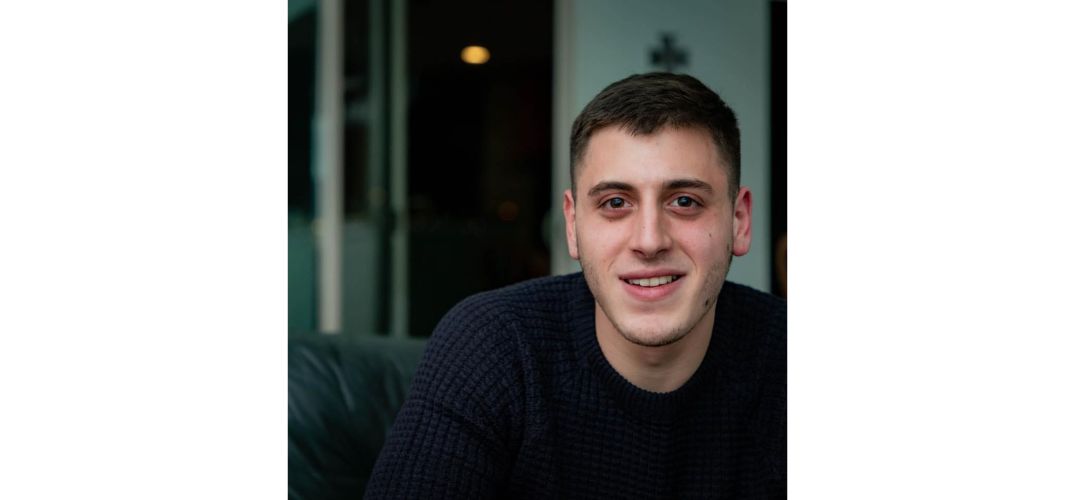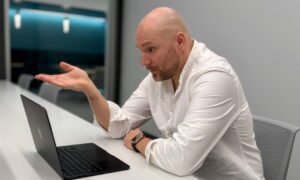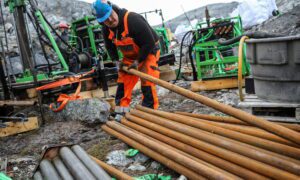Tbilisi, Georgia—a city where the cobblestones whisper of empires past and the tech hubs buzz with empires’ future—might seem an unlikely birthplace for the next wave of AI innovation. But in a modest office overlooking the Kura River, Akaki Darbuashvili is rewriting the rules of where—and how—world-class engineering gets done. Armed with a laptop and a stubborn refusal to accept that geography dictates destiny, he’s become the quiet force behind startups that punch far above their weight.
Coding Curiosity into Architecture
Darbuashvili didn’t set out to become the go-to engineer for Silicon Valley’s aspirants. He just liked solving puzzles. At 10, he was coding simple games; by 16, he was freelancing for clients who had no idea their “senior developer” hadn’t yet finished high school. His further career was anything but trivial. By the age of 16, while still in 10th grade at one of Georgia’s top schools, he began working at the renowned marketing agency LeavingStone. Just two years later, he was already contributing to AltaSoftware, a key technology provider for nearly every major bank in Georgia. Since turning 20, his focus has shifted entirely to international ventures, marking a steady trajectory from local prodigy to global innovator.
Today, his fingerprints are all over platforms used by millions. At ReSquared, a Y Combinator-backed startup, he designed the data infrastructure that turned commercial real estate outreach from a cold-calling nightmare into a targeted, AI-driven process. For Keller Williams, he helped build systems that handle the kind of traffic usually reserved for streaming giants. And through Toptal, where he’s been a top-tier freelancer for seven years, he’s become the Swiss Army knife of software engineering—deployed to help startups scale operations.
The Rise of the “Quiet Disruptor”
Darbuashvili’s work defies the Silicon Valley playbook. There’s no TED Talk, no viral LinkedIn post about “disruption,” just a series of projects that quietly make old industries work better. ModernDesign AI, his current venture, epitomizes this approach. While flashier PropTech firms chase holographic open houses, his team focuses on the “unsexy” stuff that actually moves needles: AI tools that generate listing descriptions in seconds, match buyers with properties using behavioral data and let renters visualize spaces in styles ranging from “Brooklyn loft” to “Tbilisi chic.”
The numbers suggest this understated strategy works. The AI-powered real estate market, now valued at over $200 billion, is projected to nearly double by 2029. ModernDesign’s tools, already used by brokers across three continents, tap into a global shift toward hyper-personalization. “Clients don’t want a metaverse mansion,” Darbuashvili notes. “They want to know if their couch fits.”
The Toptal Effect: Global Talent, Local Grit
Darbuashvili’s seven-year streak with Toptal—a platform that rejects 97 percent of applicants—offers a blueprint for the future of work. In an era of remote everything, he’s proof that elite engineering doesn’t require a Palo Alto ZIP code. “The best code speaks for itself,” he says, shrugging off the idea that location matters. His clients, ranging from Y Combinator startups to Fortune 500s, seem to agree: they’ve kept him booked solid since 2017.
This isn’t just an inspiring story of global talent—it’s a prompt for reflection among established tech hubs. When a self-taught engineer from Georgia can successfully compete with Ivy League graduates on their own ground, it challenges long-held assumptions about what—and who—defines “exceptional.”
The AI Whisperer’s Playbook
Darbuashvili’s success hinges on a simple formula: solve real problems, ignore hype cycles, and treat AI as a tech collaborator—not a crystal ball. At ReSquared, his algorithms didn’t just crunch data—they learned to predict which tenants would actually return a broker’s call, saving countless hours of dead-end outreach. For ModernDesign, he’s training AI to understand regional design quirks, ensuring a “luxury kitchen” in Atlanta doesn’t look identical to one in Almaty.
The approach has made him a favorite among founders tired of flashy tech buzzwords. “Akaki doesn’t sell ‘AI-powered blockchain cloud synergy,’” jokes a colleague. “He just asks, ‘What’s broken?’ and starts typing.”
Georgia on Their Minds
Darbuashvili’s story also highlights a quiet shift in global tech. Countries like Georgia, long seen as talent exporters, are now nurturing ecosystems where engineers build for the world without leaving home. Tbilisi’s tech scene, though small, boasts a density of skill that belies its size. “Compared to the work I was doing in my early years, building with AI today feels like a vacation,” Darbuashvili laughs.
This homegrown ingenuity is paying off. Georgia’s IT exports grew by 20 percent last year, with engineers like Darbuashvili leading the charge. “You don’t need a Silicon Valley address to build Silicon Valley-caliber tech,” he says. “You need Wi-Fi and a chip on your shoulder.”
The Future: Less Hype, More Code
As AI’s hype bubble threatens to burst under the weight of overpromising, Darbuashvili’s work offers a reality check. The next phase of tech innovation won’t be led by those shouting loudest about disruption, but by engineers who treat AI as a tool, not a talisman. ModernDesign’s roadmap reflects this ethos by focusing on practical features like lease automation and AI-driven repair cost estimates.
The industry is taking note. PropTech venture funding, while cooling elsewhere, continues to flow to startups that prioritize utility over utopia. As one investor puts it: “Nobody needs an AI poet. Everyone needs an AI plumber.”
The Zinger
In a world obsessed with the source of innovation, Akaki Darbuashvili offers a refreshing answer: anywhere. The next time you scroll through a perfectly staged virtual apartment, spare a thought for the Georgian engineer who has helped make it possible, one line of unglamorous, world-changing code at a time. “The future isn’t built by visionaries,” he says. “It’s debugged by people who forgot to sleep.”



































